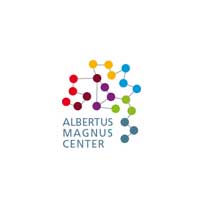Nacaps – A Study on Doctoral Candidates in Germany
The University of Cologne is a partner university of the Nacaps Study of the German Center for Higher Education Research and Science Studies (DZHW). Nacaps stands for "National Academics Panel Study" and is a nationwide longitudinal study of doctoral students and doctoral graduates.
Nacaps collects comprehensive information on doctoral conditions and successes, career intentions and general living conditions of doctoral students and doctoral graduates.
How are doctoral researchers in Germany doing?
At nacaps-datenportal.de, in addition to evaluations of the 2019 doctoral student survey, the results of the 2021 survey with more than 10,000 participants at over 60 universities can be accessed.
The results are presented in the portal in the form of indicators. These are grouped into seven themes:
▪ Working and employment conditions
▪ Supervision situation
▪ Type and structure of doctoral studies
▪ Motives for doctoral studies and course of doctoral studies
▪ Career paths and perspectives after the doctorate mobility
▪ Life situation / personal background
For more information on the study, please visit www.nacaps.de.
Your feedback is important to us: your experiences and impressions will help to rethink doctoral studies for current and future doctoral students at the University of Cologne. By participating in Nacaps, you have the opportunity to actively set new impulses yourself and to help shape university policy. The results of the survey flow into scientific publications and serve as a basis for political reporting, such as the four-yearly "Bundesbericht Wissenschaftlicher Nachwuchs" (BuWiN). Your participation in the survey thus shapes future decisions.
Nacaps doctoral student survey 2023
In February 2023, doctoral students who registered as new doctoral students at the University of Cologne between December 2, 2020 and December 1, 2022 were invited to participate in the survey.
The results of the 2023 doctoral student survey are available in the public area of the data portal.
We thank you for your support for this research project - collegially - with your participation!
